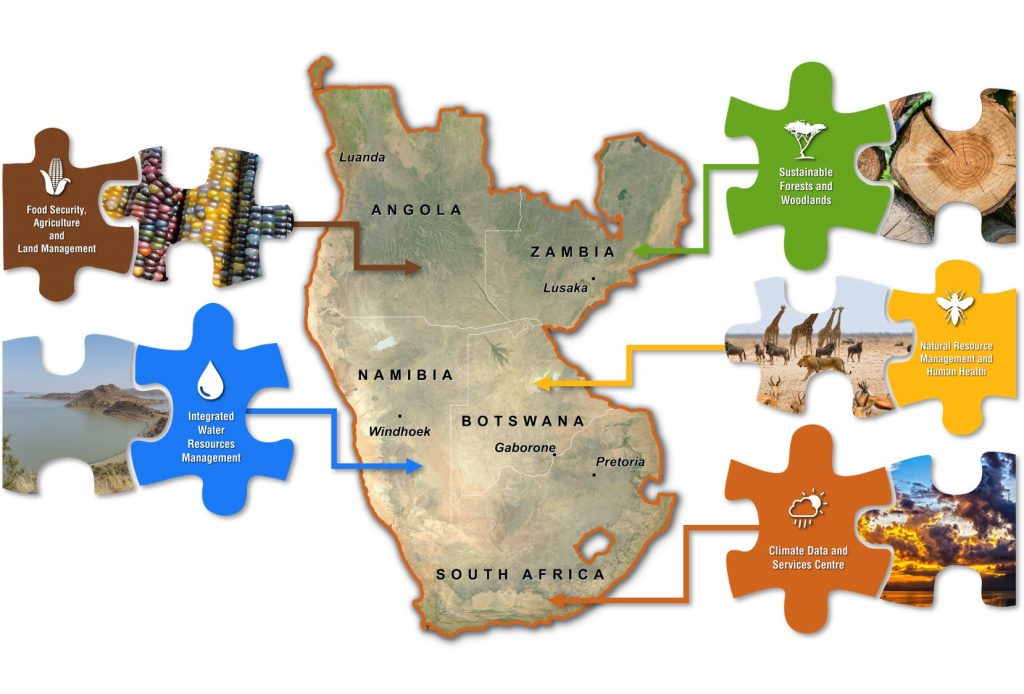The SASSCAL Graduate Studies Programme (SGSP) is a joint regional initiative to develop and implement unique, new, innovative, excellent and collaborative education through PhD research programmes in SASSCAL’s member countries Angola, Botswana, Namibia, South Africa and Zambia. The Programme aims to establish a group of five Graduate Studies Programmes (GSPs) of excellence in the region with funding from the German Federal Ministry of Education and Research (BMBF).

The SASSCAL GSP will operate as graduate research programmes under the coordination of the selected host academic institution in the SASSCAL member country to manage academic processes, host students and implement training products in collaboration with German partner institution. The German partners will collaborate with the PhD programmes through curriculum development, visiting professorships, co-supervision of students and facilitation of student mobility to Germany for up to 6 months during the second year of studies.
SASSCAL Grants Scholarships
SASSCAL grants scholarships to selected students for the duration of the PhD programme. The scholarship programme is only eligible to candidates from the SASSCAL countries. Depending on the number of available places, host universities may also admit self-funded students but SASSCAL funded students will receive priority. Candidates who hold a qualification at masters’ or its equivalent from a recognised university in a related discipline will be considered for admission.
Graduate Studies Programme in Integrated Water Resources Management
SASSCAL is in the process of establishing the first Graduate Studies Programme in Integrated Water Resources Management (IWRM) in Namibia hosted by the Namibia University of Science and Technology (NUST) in collaboration with the Helmholtz Centre for Environmental Research (UFZ) as the German partner institution. These programmes are embedded in SASSCAL’s effort towards building regional thematic Centres of Excellence based on the identified Research Priority Areas.



